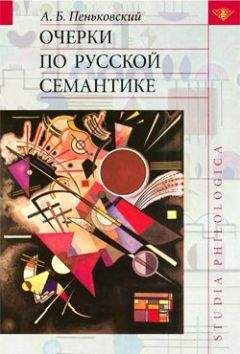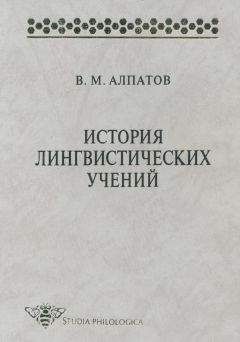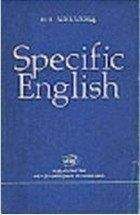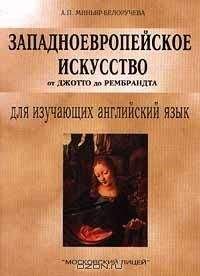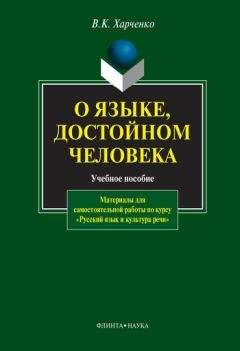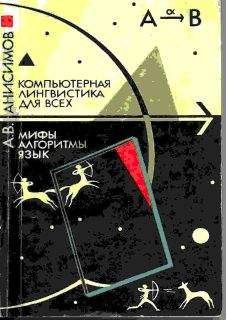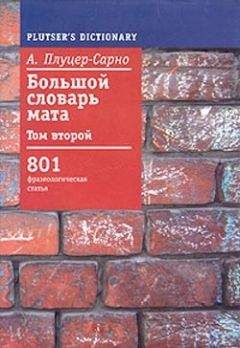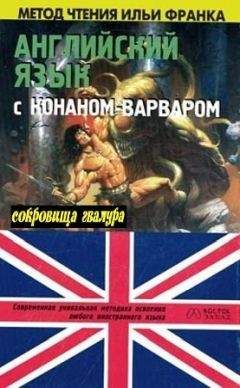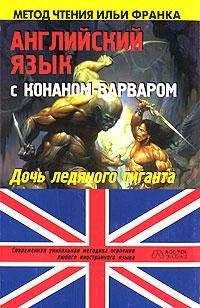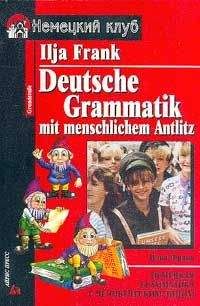Клайв Льюис - "Племянник чародея" with W_cat
Все авторские права соблюдены. Напишите нам, если Вы не согласны.
Описание книги ""Племянник чародея" with W_cat"
Описание и краткое содержание ""Племянник чародея" with W_cat" читать бесплатно онлайн.
Вниманию читателей предлагается книга Клайва Льюиса «Племянник чародея».
Каждый абзац текста, на английском языке, снабжен ссылкой на литературный перевод.
Книга предназначена для учащихся старший классов школ, лицеев и гимназий, а также для широкого круга лиц, интересующихся английской литературой и совершенствующих свою языковую подготовку.
[220] “There!” said Digory. “That’s alright. Now for the adventure. Any pool will do. Come on. Let’s try that one.”
[221] “Stop!” said Polly—“Aren’t we going to mark this pool?”
[222] They stared at each other and turned quite white as they realized the dreadful thing that Digory had just been going to do. For there were any number of pools in the wood, and the pools were all alike and the trees were all alike, so that if they had once left behind the pool that led to our own world without making some sort of landmark, the chances would have been a hundred to one against their ever finding it again.
Digory’s hand was shaking as he opened his penknife and cut out a long strip of turf on the bank of the pool. The soil (which smelled nice) was of a rich reddish brown and showed up well against the green. “It’s a good thing one of us has some sense,” said Polly.
[223] “Well don’t keep on gassing about it,” said Digory. “Come along, I want to see what’s in one of the other pools.” And Polly gave him a pretty sharp answer and he said something even nastier in reply. The quarrel lasted for several minutes but it would be dull to write it all down. Let us skip on to the moment at which they stood with beating hearts and rather scared faces on the edge of the unknown pool with their yellow rings on and held hands and once more said “One—Two—Three—Go!”
[224] Splash! Once again it hadn’t worked. This pool, too, appeared to be only a puddle. Instead of reaching a new world they only got their feet wet and splashed their legs for the second time that morning (if it was a morning: it seems to be always the same time in the Wood between the Worlds).
[225] “Blast and botheration!” exclaimed Digory. “What’s gone wrong now? We’ve put our yellow rings on all right. He said yellow for the outward journey.”
[226] Now the truth was that Uncle Andrew, who knew nothing about the Wood between the Worlds, had quite a wrong idea about the rings. The yellow ones weren’t “outward” rings and the green ones weren’t “homeward” rings; at least, not in the way he thought. The stuff of which both were made had all come from the wood. The stuff in the yellow rings had the power of drawing you into the wood; it was stuff that wanted to get back to its own place, the in-between place. But the stuff in the green rings is stuff that is trying to get out of its own place: so that a green ring would take you out of the wood into a world. Uncle Andrew, you see, was working with things he did not really understand; most magicians are. Of course Digory did not realize the truth quite clearly either, or not till later. But when they had talked it over, they decided to try their green rings on the new pool, just to see what happened.
[227] “I’m game if you are,” said Polly. But she really said this because, in her heart of hearts, she now felt sure that neither kind of ring was going to work at all in the new pool, and so there was nothing worse to be afraid of than another splash. I am not quite sure that Digory had not the same feeling. At any rate, when they had both put on their greens and come back to the edge of the water, and taken hands again, they were certainly a good deal more cheerful and less solemn than they had been the first time.
[228] “One—Two—Three—Go!” said Digory. And they jumped.
[229] CHAPTER FOUR.
THE BELL AND THE HAMMER
[230] THERE was no doubt about the Magic this time. Down and down they rushed, first through darkness and then through a mass of vague and whirling shapes which might have been almost anything. It grew lighter. Then suddenly they felt that they were standing on something solid. A moment later everything came into focus and they were able to look about them.
“What a queer place!” said Digory.
[231] “I don’t like it,” said Polly with something like a shudder.
[232] What they noticed first was the light. It wasn’t like sunlight, and it wasn’t like electric light, or lamps, or candles, or any other light they had ever seen. It was a dull, rather red light, not at all cheerful. It was steady and did not flicker. They were standing on a flat paved surface and buildings rose all around them. There was no roof overhead; they were in a sort of courtyard. The sky was extraordinarily dark—a blue that was almost black. When you had seen that sky you wondered that there should be any light at all.
[233] “It’s very funny weather here,” said Digory. “I wonder if we’ve arrived just in time for a thunderstorm; or an eclipse.”
[234] “I don’t like it,” said Polly.
[235] Both of them, without quite knowing why, were talking in whispers. And though there was no reason why they should still go on holding hands after their jump, they didn’t let go.
The walls rose very high all round that courtyard. They had many great windows in them, windows without glass, through which you saw nothing but black darkness. Lower down there were great pillared arches, yawning blackly like the mouths of railway tunnels. It was rather cold.
[236] The stone of which everything was built seemed to be red, but that might only be because of the curious light. It was obviously very old. Many of the flat stones that paved the courtyard had cracks across them. None of them fitted closely together and the sharp corners were all worn off. One of the arched doorways was half filled up with rubble. The two children kept on turning round and round to look at the different sides of the courtyard. One reason was that they were afraid of somebody—or something—looking out of those windows at them when their backs were turned.
[237] “Do you think anyone lives here?” said Digory at last, still in a whisper.
[238] “No,” said Polly. “It’s all in ruins. We haven’t heard a sound since we came.”
[239] “Let’s stand still and listen for a bit,” suggested Digory.
[240] They stood still and listened, but all they could hear was the thump-thump of their own hearts. This place was at least as quiet as the Wood between the Worlds. But it was a different kind of quietness. The silence of the Wood had been rich and warm (you could almost hear the trees growing) and full of life: this was a dead, cold, empty silence. You couldn’t imagine anything growing in it.
[241] “Let’s go home,” said Polly.
[242] “But we haven’t seen anything yet,” said Digory. “Now we’re here, we simply must have a look round.”
[243] “I’m sure there’s nothing at all interesting here.”
[244] “There’s not much point in finding a magic ring that lets you into other worlds if you’re afraid to look at them when you’ve got there.”
[245] “Who’s talking about being afraid?” said Polly, letting go of Digory’s hand.
[246] “I only thought you didn’t seem very keen on exploring this place.”
[247] “I’ll go anywhere you go.”
[248] “We can get away the moment we want to,” said Digory. “Let’s take off our green rings and put them in our right-hand pockets. All we’ve got to do is to remember that our yellow are in our left-hand pockets. You can keep your hand as near your pocket as you like, but don’t put it in or you’ll touch your yellow and vanish.”
[249] They did this and went quietly up to one of the big arched doorways which led into the inside of the building. And when they stood on the threshold and could look in, they saw it was not so dark inside as they had thought at first. It led into a vast, shadowy hall which appeared to be empty; but on the far side there was a row of pillars with arches between them and through those arches there streamed in some more of the same tired-looking light. They crossed the hall, walking very carefully for fear of holes in the floor or of anything lying about that they might trip over. It seemed a long walk. When they had reached the other side they came out through the arches and found themselves in another and larger courtyard.
[250] “That doesn’t look very safe,” said Polly, pointing at a place where the wall bulged outward and looked as if it were ready to fall over into the courtyard. In one place a pillar was missing between two arches and the bit that came down to where the top of the pillar ought to have been hung there with nothing to support it. Clearly, the place had been deserted for hundreds, perhaps thousands, of years.
“If it’s lasted till now, I suppose it’ll last a bit longer,” said Digory. “But we must be very quiet. You know a noise sometimes brings things down—like an avalanche in the Alps.”
[251] They went on out of that courtyard into another doorway, and up a great flight of steps and through vast rooms that opened out of one another till you were dizzy with the mere size of the place. Every now and then they thought they were going to get out into the open and see what sort of country lay around the enormous palace. But each time they only got into another courtyard. They must have been magnificent places when people were still living there. In one there had once been a fountain. A great stone monster with wide-spread wings stood with its mouth open and you could still see a bit of piping at the back of its mouth, out of which the water used to pour. Under it was a wide stone basin to hold the water; but it was as dry as a bone. In other places there were the dry sticks of some sort of climbing plant which had wound itself round the pillars and helped to pull some of them down. But it had died long ago. And there were no ants or spiders or any of the other living things you expect to see in a ruin; and where the dry earth showed between the broken flagstones there was no grass or moss.
[252] It was all so dreary and all so much the same that even Digory was thinking they had better put on their yellow rings and get back to the warm, green, living forest of the In-between place, when they came to two huge doors of some metal that might possibly be gold. One stood a little ajar. So of course they went to look in. Both started back and drew a long breath: for here at last was something worth seeing.
[253] For a second they thought the room was full of people—hundreds of people, all seated, and all perfectly still. Polly and Digory, as you may guess, stood perfectly still themselves for a good long time, looking in. But presently they decided that what they were looking at could not be real people. There was not a movement nor the sound of a breath among them all. They were like the most wonderful waxworks you ever saw.
[254] This time Polly took the lead. There was something in this room which interested her more than it interested Digory: all the figures were wearing magnificent clothes. If you were interested in clothes at all, you could hardly help going in to see them closer. And the blaze of their colours made this room look, not exactly cheerful, but at any rate rich and majestic after all the dust and emptiness of the others. It had more windows, too, and was a good deal lighter.
I can hardly describe the clothes. The figures were all robed and had crowns on their heads. Their robes were of crimson and silvery grey and deep purple and vivid green: and there were patterns, and pictures of flowers and strange beasts, in needlework all over them. Precious stones of astonishing size and brightness stared from their crowns and hung in chains round their necks and peeped out from all the places where anything was fastened.
[255] “Why haven’t these clothes all rotted away long ago?” asked Polly.
[256] “Magic,” whispered Digory. “Can’t you feel it? I bet this whole room is just stiff with enchantments. I could feel it the moment we came in.”
[257] “Any one of these dresses would cost hundreds of pounds,” said Polly.
[258] But Digory was more interested in the faces, and indeed these were well worth looking at. The people sat in their stone chairs on each side of the room and the floor was left free down the middle. You could walk down and look at the faces in turn.
“They were nice people, I think,” said Digory.
Polly nodded. All the faces they could see were certainly nice. Both the men and women looked kind and wise, and they seemed to come of a handsome race. But after the children had gone a few steps down the room they came to faces that looked a little different. These were very solemn faces. You felt you would have to mind your P’s and Q’s, if you ever met living people who looked like that. When they had gone a little further, they found themselves among faces they didn’t like: this was about the middle of the room. The faces here looked very strong and proud and happy, but they looked cruel. A little further on they looked crueller. Further on again, they were still cruel but they no longer looked happy. They were even despairing faces: as if the people they belonged to had done dreadful things and also suffered dreadful things. The last figure of all was the most interesting—a woman even more richly dressed than the others, very tall (but every figure in that room was taller than the people of our world), with a look of such fierceness and pride that it took your breath away. Yet she was beautiful too. Years afterwards when he was an old man, Digory said he had never in all his life known a woman so beautiful. It is only fair to add that Polly always said she couldn’t see anything specially beautiful about her.
This woman, as I said, was the last: but there were plenty of empty chairs beyond her, as if the room had been intended for a much larger collection of images.
“I do wish we knew the story that’s behind all this,” said Digory. “Let’s go back and look at that table sort of thing in the middle of the room.”
The thing in the middle of the room was not exactly a table. It was a square pillar about four feet high and on it there rose a little golden arch from which there hung a little golden bell; and beside this there lay a little golden hammer to hit the bell with.
[259] “I wonder… I wonder… I wonder…” said Digory.
[260] “There seems to be something written here,” said Polly, stooping down and looking at the side of the pillar.
[261] “By gum, so there is,” said Digory. “But of course we shan’t be able to read it.”
[262] “Shan’t we? I’m not so sure,” said Polly.
[263] They both looked at it hard and, as you might have expected, the letters cut in the stone were strange. But now a great wonder happened: for, as they looked, though the shape of the strange letters never altered, they found that they could understand them. If only Digory had remembered what he himself had said a few minutes ago, that this was an enchanted room, he might have guessed that the enchantment was beginning to work. But he was too wild with curiosity to think about that. He was longing more and more to know what was written on the pillar. And very soon they both knew. What it said was something like this—at least this is the sense of it though the poetry, when you read it there, was better:
[264] Make your choice, adventurous Stranger;
Strike the bell and bide the danger,
Or wonder, till it drives you mad,
What would have followed if you had.
[265] “No fear!” said Polly. “We don’t want any danger.”
[266] “Oh but don’t you see it’s no good!” said Digory. “We can’t get out of it now. We shall always be wondering what else would have happened if we had struck the bell. I’m not going home to be driven mad by always thinking of that. No fear!”
Подписывайтесь на наши страницы в социальных сетях.
Будьте в курсе последних книжных новинок, комментируйте, обсуждайте. Мы ждём Вас!
Похожие книги на ""Племянник чародея" with W_cat"
Книги похожие на ""Племянник чародея" with W_cat" читать онлайн или скачать бесплатно полные версии.
Мы рекомендуем Вам зарегистрироваться либо войти на сайт под своим именем.
Отзывы о "Клайв Льюис - "Племянник чародея" with W_cat"
Отзывы читателей о книге ""Племянник чародея" with W_cat", комментарии и мнения людей о произведении.






